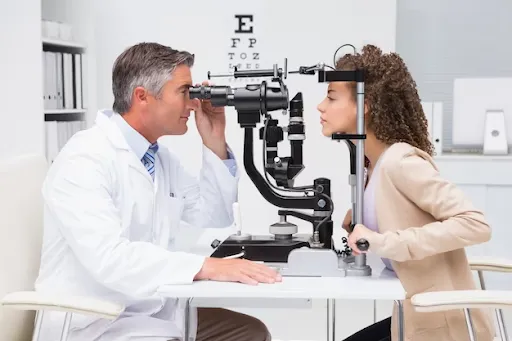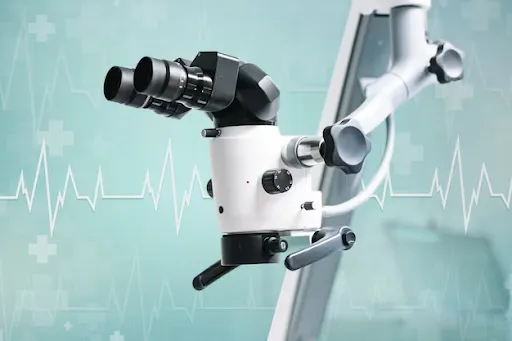Eye Health Insights
How Eye Exams Help Prevent Vision Loss
FSDAVCFEBFEVSDDVFSD
FSDAVCFEBFEVSDDVFSD
FSDAVCFEBFEVSDDVFSD
The Importance of Regular Eye Exams
Routine eye exams are essential for safeguarding long-term vision health. Many eye conditions, including glaucoma, cataracts, and macular degeneration, progress silently without symptoms until significant damage occurs. Regular check-ups allow for early detection and timely intervention, greatly reducing the risk of permanent vision loss.
Eye exams utilize advanced diagnostic tools to evaluate overall eye health and uncover early signs of potential issues. For individuals at higher risk, such as those with a family history of eye diseases, diabetes, or hypertension, these exams are particularly vital. Proactively managing your eye health through routine exams can make a lasting impact on preserving your vision and overall quality of life.
Routine eye exams are essential for safeguarding long-term vision health. Many eye conditions, including glaucoma, cataracts, and macular degeneration, progress silently without symptoms until significant damage occurs. Regular check-ups allow for early detection and timely intervention, greatly reducing the risk of permanent vision loss.

Eye exams utilize advanced diagnostic tools to evaluate overall eye health and uncover early signs of potential issues. For individuals at higher risk, such as those with a family history of eye diseases, diabetes, or hypertension, these exams are particularly vital. Proactively managing your eye health through routine exams can make a lasting impact on preserving your vision and overall quality of life.

Conditions Eye Exams Can Detect Early
Eye exams are essential for identifying and managing serious eye conditions that can lead to vision loss. One of the most concerning is glaucoma, often called the "silent thief of sight." This condition damages the optic nerve and progresses without noticeable symptoms in its early stages. Through intraocular pressure tests and other diagnostic tools, eye exams can detect glaucoma early, allowing for timely treatment to prevent irreversible vision loss.
Cataracts, another common condition, occur when the eye’s natural lens becomes clouded, leading to blurred vision and sensitivity to light. While cataracts develop gradually, regular eye exams help monitor their progression and determine when intervention, such as surgery, is necessary to restore clear vision. Early detection ensures that patients can maintain their quality of life without prolonged visual impairment.
Age-related macular degeneration (AMD) is another serious condition that affects central vision, making activities like reading, driving, and recognizing faces challenging. Comprehensive eye exams can detect early signs of AMD, enabling patients to access treatments that slow its progression and preserve vision. By identifying conditions like these early, routine eye exams empower patients to take proactive steps to protect their vision and maintain independence in their daily lives.
Advanced Tools for Early Detection

Modern optometry utilizes advanced technology to deliver comprehensive and precise eye care. Tools like optical coherence tomography (OCT) and retinal imaging offer highly detailed views of the eye’s internal structure, enabling eye care professionals to detect abnormalities at their earliest stages. These technologies are invaluable for diagnosing conditions such as glaucoma, macular degeneration, and diabetic retinopathy, which often develop silently without noticeable symptoms.
By leveraging these cutting-edge tools, optometrists can monitor subtle changes in the eye’s health over time, ensuring treatments are effective and tailored to the patient’s unique needs.

Regular eye exams that incorporate these technologies allow for early intervention, reducing the risk of vision loss and improving long-term outcomes. With personalized care plans based on precise diagnostics, patients gain confidence in maintaining their vision and overall eye health for years to come.
Incorporating advanced diagnostics into routine eye exams emphasizes the critical role regular check-ups play in safeguarding vision. Modern tools like optical coherence tomography (OCT) and digital retinal imaging allow eye care professionals to detect eye conditions at their earliest stages, even before symptoms arise. Conditions such as glaucoma, diabetic retinopathy, and macular degeneration often progress silently, but these advanced technologies provide detailed insights into the eye’s structure, enabling timely intervention. This proactive approach reduces the risk of permanent vision loss and enhances treatment outcomes.
Routine exams with advanced diagnostics are particularly beneficial for individuals with a higher risk of eye diseases, such as those with diabetes, hypertension, or a family history of vision problems. These tools not only help diagnose potential issues but also monitor the effectiveness of ongoing treatments, ensuring personalized care tailored to each patient’s needs. By integrating cutting-edge technology into eye care, patients can enjoy peace of mind, knowing their vision health is in expert hands. Prioritizing routine eye exams is a simple yet powerful step toward maintaining lifelong eye health and overall well-being.
Actionable Steps for Eye Health
Protecting your vision requires proactive care and healthy habits. Start by scheduling routine comprehensive eye exams, which are crucial for detecting potential issues early based on your age and risk factors. Conditions like glaucoma, cataracts, and macular degeneration often develop silently, but regular check-ups enable timely intervention. Maintaining a healthy lifestyle such as eating a balanced diet rich in nutrients, exercising regularly, and avoiding smoking can further reduce the risk of vision-related problems, including diabetic retinopathy and macular degeneration.
In addition, take measures to shield your eyes from injury and strain. Always wear protective eyewear during activities that may pose a risk of harm, such as playing sports or working in hazardous environments. Monitor your vision for any changes, such as blurriness or discomfort, and report these to your eye doctor immediately. By combining regular eye exams, healthy habits, and protective measures, you can safeguard your vision and ensure lasting eye health for the future.
Why Prevention is Key to Vision Health
Preventative eye care is a proactive and cost-effective strategy for maintaining long-term vision health. Regular eye exams help identify issues like glaucoma, cataracts, and macular degeneration in their early stages, enabling timely interventions. Treatments such as medications, lifestyle changes, or surgery can significantly slow disease progression or restore clear vision.
Beyond medical benefits, early care reduces the emotional and physical toll of advanced vision loss. By preventing significant impairment, individuals can maintain their independence and quality of life, avoiding the challenges associated with managing advanced eye conditions.
Preventative eye care is a proactive and cost-effective strategy for maintaining long-term vision health. Regular eye exams help identify issues like glaucoma, cataracts, and macular degeneration in their early stages, enabling timely interventions. Treatments such as medications, lifestyle changes, or surgery can significantly slow disease progression or restore clear vision.

Beyond medical benefits, early care reduces the emotional and physical toll of advanced vision loss. By preventing significant impairment, individuals can maintain their independence and quality of life, avoiding the challenges associated with managing advanced eye conditions.
This approach also fosters collaboration between patients and eye care providers, emphasizing the importance of shared responsibility in eye health. Empowered with knowledge and guidance, patients can make informed decisions to safeguard their vision for years to come.
This approach also fosters collaboration between patients and eye care providers, emphasizing the importance of shared responsibility in eye health. Empowered with knowledge and guidance, patients can make informed decisions to safeguard their vision for years to come.
When to Schedule Your Next Eye Exam
Experts emphasize the importance of regular comprehensive eye exams to maintain lifelong vision health. The frequency of these exams varies based on age, health status, and individual risk factors. Early detection through routine check-ups can address potential issues before symptoms arise, ensuring optimal eye care throughout life.
For children, eye exams are crucial to monitor developing eyes. Starting at six months old, children should have their vision checked every 1-2 years. Early detection of issues such as lazy eye or misaligned eyes can significantly improve long-term visual outcomes, allowing for timely intervention during crucial developmental years.
Adults aged 19-40 years are generally recommended to schedule eye exams every two years unless they have specific risk factors, such as a family history of eye diseases, diabetes, or prolonged screen use. For adults aged 41-60 years, the frequency increases to every 1-2 years. This period often marks the onset of age-related changes like presbyopia, requiring closer monitoring for early signs of conditions like glaucoma or macular degeneration.
Seniors aged 61 and above should have annual eye exams. With aging comes a higher risk of cataracts, macular degeneration, and other vision-impacting conditions. Regular check-ups ensure early detection and treatment, helping seniors maintain independence and quality of life. No matter your age, don’t wait for symptoms to appear. Schedule your comprehensive eye exam today to safeguard your vision and take a proactive step toward maintaining lifelong eye health. These routine visits are essential for preserving clarity, comfort, and confidence in your everyday activities.
Internal Resources for Better Vision Care
Supporting your eye health begins with staying informed, and our website offers a wealth of resources to guide you. Learn about the benefits of Comprehensive Eye Exams and how regular check-ups can safeguard your vision by detecting issues early.

Supporting your eye health begins with staying informed, and our website offers a wealth of resources to guide you. Learn about the benefits of Comprehensive Eye Exams and how regular check-ups can safeguard your vision by detecting issues early.
Understanding eye conditions is vital for proactive care. Explore the signs and management of Glaucoma , often called the "silent thief of sight," and learn about effective Macular Degeneration Treatments that can help preserve central vision. These resources provide insights into common eye health challenges and the solutions available.
Understanding eye conditions is vital for proactive care. Explore the signs and management of Glaucoma , often called the "silent thief of sight," and learn about effective Macular Degeneration Treatments that can help preserve central vision. These resources provide insights into common eye health challenges and the solutions available.
Prevention is key to long-term vision health. Discover practical tips to Prevent Vision Loss, including the importance of routine care and lifestyle adjustments. Each resource empowers you to make informed decisions on your eye care journey, ensuring clarity and confidence in preserving your vision.
Prevention is key to long-term vision health. Discover practical tips to Prevent Vision Loss, including the importance of routine care and lifestyle adjustments. Each resource empowers you to make informed decisions on your eye care journey, ensuring clarity and confidence in preserving your vision.
Protect Your Vision with Routine Care
Protecting your vision begins with regular eye exams. These essential check-ups not only help detect issues like glaucoma and cataracts early but also play a crucial role in preventing vision loss and maintaining overall well-being. Early diagnosis allows for timely treatments, ensuring your eyesight remains clear and healthy for years to come. Regular exams also provide insights into your overall health, as many systemic conditions like diabetes and hypertension can be detected through your eyes.
Make your eye health a top priority today. Scheduling a comprehensive eye exam is the first step toward safeguarding your vision and enhancing your quality of life. At Kleinwood Vision, our experienced team is dedicated to providing personalized care tailored to your unique needs. Don’t wait for symptoms to appear. Contact us today to take proactive steps toward healthier, clearer vision and a brighter future.

Contact Info
Hours of Operation
Mon - Fri | 9:00 AM - 5:00 PM
Sat - Sun | Closed
Holiday Hours: We are closed for the following holidays: New Years Day, Memorial Day, Independence Day, Labor Day, Thanksgiving Day, Christmas Day
© 2026 Kleinwood Vision. All rights Reserved.


